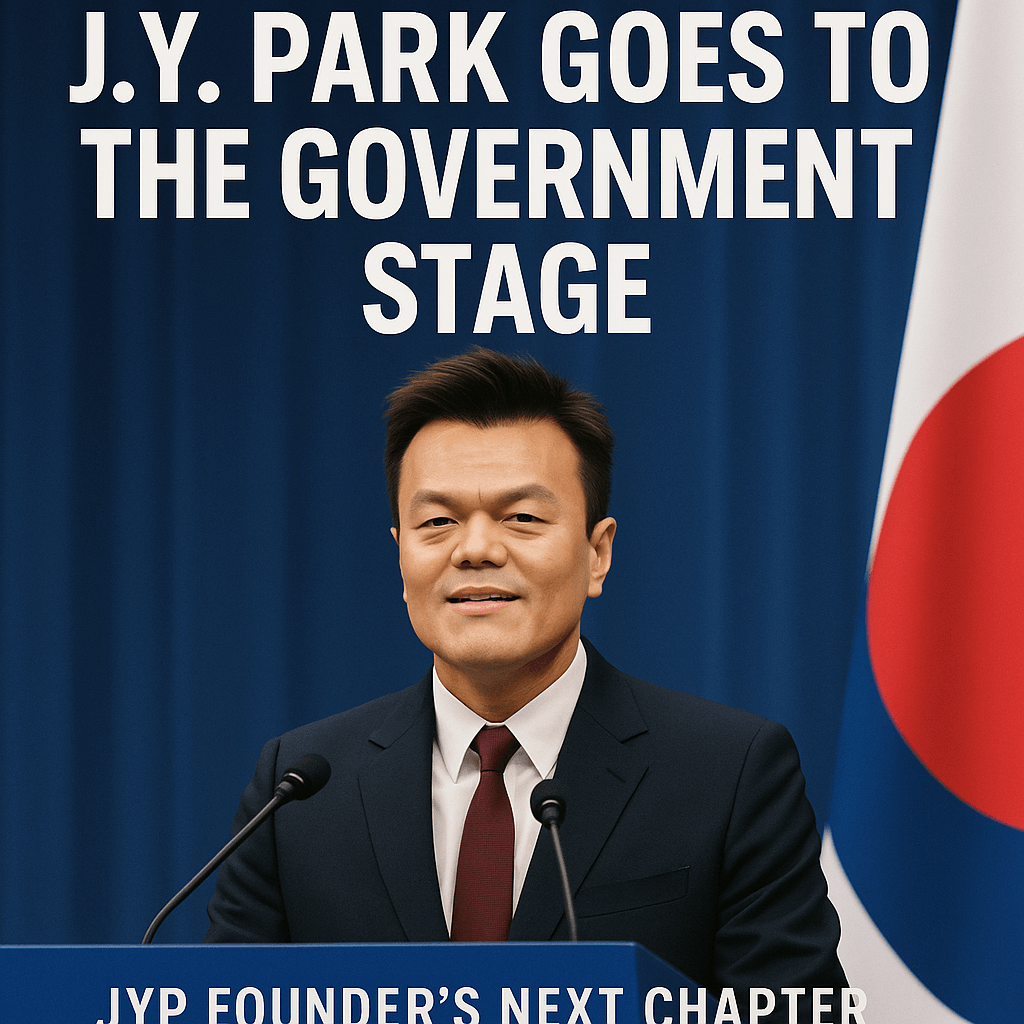The founder of JYP Entertainment and one of K-pop’s most iconic figures, J.Y. Park (Park Jin-young), is once again making headlines — but not for a new song or a flashy performance.
This time, his stage has changed.
He’s trading bright spotlights for… a government meeting room.
Recently, Park was appointed as an advisor to South Korea’s National Committee for Cultural Exchange, a newly formed body aimed at strengthening the nation’s “soft power” through K-pop, drama, fashion, and food.
In other words, it’s the engine room of K-Culture diplomacy.
🌏 “K-pop is the language through which Korea speaks to the world.”
J.Y. Park has never been just a singer.
He’s a producer, entrepreneur, and cultural visionary who has shaped the global rise of K-pop for nearly three decades — launching acts like 2PM, TWICE, and Stray Kids.
Now, he’s entering a new era — helping bridge entertainment and cultural policy at the national level.
His very presence on the advisory board signals how far K-pop has come:
from global music phenomenon to an official tool of diplomacy.
🎙️ As Park once said,
“K-pop isn’t just music. It’s how Korea talks to the world.”
And now, he’s literally turning that “conversation” into government dialogue.
🧭 The Meeting of Industry and Policy — A Risk or a Revolution?
Not everyone is cheering.
Some critics argue that entertainment companies shouldn’t be too close to government policy.
But others see this as a much-needed bridge between policy makers who rarely understand the industry and creators who know the global field better than anyone.
With J.Y. Park on board, the hope is that cultural policies will reflect real industry experience, leading to more effective support for artists and creators.
In a sense, Korea might be entering a new era of two-way K-culture diplomacy, where policy learns from art — and art gains strength from policy.
💬 In one sentence?
🎶 “He’s no longer producing songs — he’s producing systems.”
Park’s next chapter isn’t just about music anymore.
It’s about national branding, cultural diplomacy, and empowering young creators around the world.
This isn’t just an appointment.
It’s a sign that K-pop has officially become a language of diplomacy.
